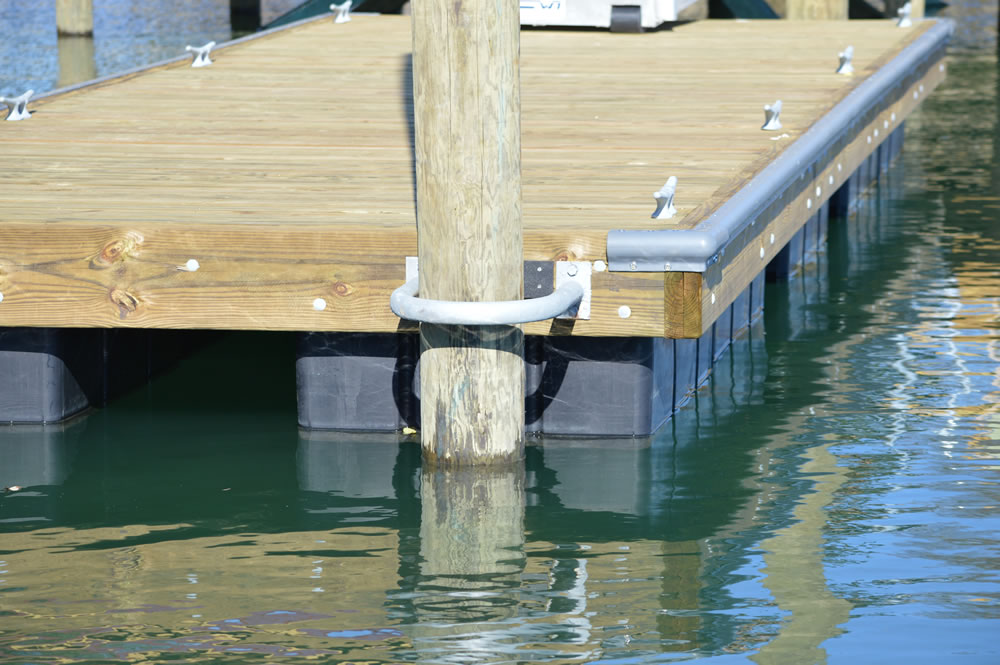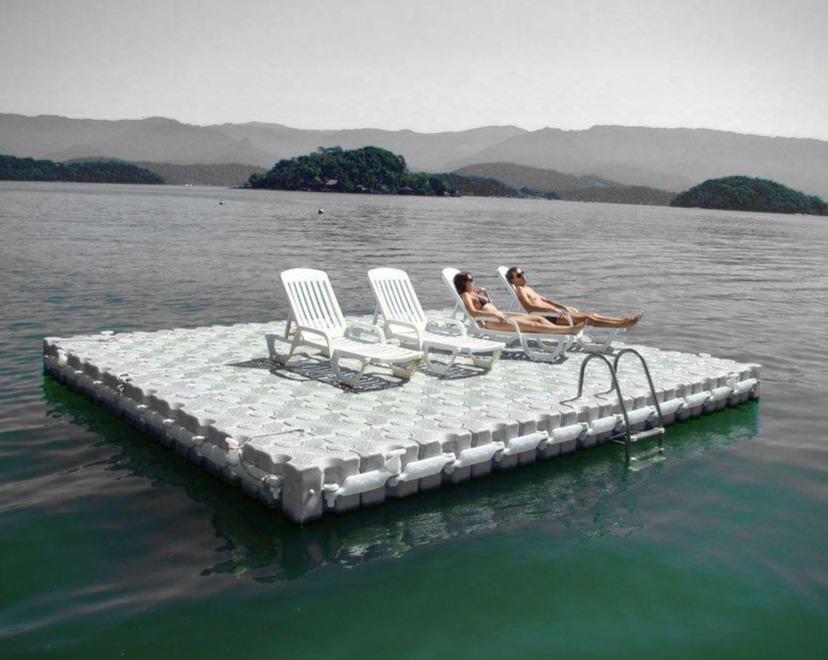Just how to Select the Right Floating Dock Builder for Your Personalized Dock Demands
Just how to Select the Right Floating Dock Builder for Your Personalized Dock Demands
Blog Article
Why Floating Docks Are the Perfect Option for Your Waterside Requirements
Floating docks existing a compelling remedy for waterfront requirements, especially due to their adaptability to varying water levels and their robust, modular style. As we check out the multifaceted advantages and applications of floating docks, it comes to be apparent why they stand out in the world of beachfront facilities-- particularly when taking into consideration the lasting advantages they supply for numerous stakeholders.
Key Advantages of Floating Docks
The adaptability of floating docks offers many advantages for waterfront applications, making them a significantly prominent choice amongst marina drivers and residential property programmers. Among the main advantages is their adaptability to rising and fall water levels, which allows them to remain functional in numerous atmospheres, including lakes, rivers, and seaside locations. Unlike conventional set docks, floating docks can fall and increase with the tides and seasonal modifications, guaranteeing consistent accessibility.
Additionally, floating docks are usually much easier and less costly to preserve and set up. Their modular layout promotes fast assembly, reducing labor expenses and building and construction time. Moreover, the products used in floating dock construction are usually immune to rust, making sure durability with very little upkeep.
Safety is one more essential benefit; the resilient nature of these docks minimizes the threat of mishaps during boarding and disembarking, making them especially appealing for family-oriented centers. Last but not least, their ecological impact is reduced than that of fixed frameworks, as they do not interrupt marine ecological communities. Collectively, these advantages position floating docks as a remarkable service for a series of waterside requirements, aligning with both operational efficiency and ecological factors to consider.
Ideal Applications for Different Tasks
Adaptability is a characteristic of floating docks, making them appropriate for a wide variety of tasks across numerous waterside settings. These functional frameworks can act as excellent platforms for entertainment tasks such as boating, angling, and swimming. Their resilient nature enables easy access to watercraft, enabling smooth embarkation and disembarkation, while likewise providing a stable location for fishermens to cast their lines.
In commercial setups, floating docks facilitate the loading and unloading of goods, suiting both huge and small vessels. They are specifically valuable in locations with fluctuating water levels, ensuring that operations continue to be nonstop. In addition, floating docks can be used for beachfront eating and enjoyment, offering a scenic and special experience for clients.
Environmental applications are also significant; floating docks can function as observation systems for wild animals viewing or as docking stations for study vessels participated in ecological studies. As marina expansions become extra prevalent, these docks offer a functional service for increasing capacity without considerable land modifications. Ultimately, the versatility of floating docks makes them a favored option for anyone looking for practical and reliable waterfront options.
Layout and Modification Choices
Floating docks not only satisfy diverse tasks yet also use a variety of style and modification options that improve their performance and aesthetic charm. These functional structures can be tailored to fit certain beachfront requirements, whether for domestic, commercial, or recreational functions.
One trick element of customization is the option of materials. Options vary from high-density polyethylene to light weight aluminum, each giving unique benefits in terms of longevity and upkeep. Furthermore, the setup of the dock can be adapted to fit numerous water levels and ecological conditions, making certain stability and security.
Design attributes can include integrated seating, railings, and lights, which not just improve use yet also improve the aesthetic aspect of the dock. Customized coatings and shades enable proprietors to match the dock with existing frameworks or personal choices, producing a cohesive look for the waterside.
Moreover, floating docks can be designed with modular areas, enabling simple expansion or reconfiguration as needs change. This adaptability is specifically valuable for growing family members or developing companies. Overall, the substantial design and customization options available make floating docks an extremely adaptable option for any waterside setting.
Setup and Upkeep Factors To Consider
Usually, successful installation and maintenance of floating docks call for cautious preparation and this page focus to information. Before beginning installment, it is important to evaluate the certain site problems, including water depth, wave activity, and local policies. This preliminary assessment educates the choice of materials and layout, making sure the dock will hold up against environmental anxieties.

Upkeep is similarly vital to prolong the life-span of the dock. Normal assessments must be performed to recognize wear and tear, specifically on flotation devices, adapters, and outdoor decking. Cleaning up the dock regularly aids prevent the accumulation of algae and debris, which can jeopardize surface area integrity and looks.
Furthermore, seasonal prep work, such as getting rid of accessories and safeguarding the dock during extreme weather, can avoid damage. By focusing on proper installation and routine maintenance, owners can guarantee their floating dock stays a practical and dependable waterside service for several years to find.

Ecological Effect and Sustainability
The environmental impact of floating docks is an important factor to consider for beachfront tasks, as these frameworks connect straight with water environments. floating docks. Unlike traditional set docks, floating docks minimize disruption to the substratum, permitting for all-natural debris motion and decreasing erosion. Their layout enables water flow beneath, advertising healthy aquatic settings and sustaining regional wildlife
Several floating docks are built from sustainable products, such as recycled plastics and eco-friendly compounds, which reduce the carbon impact related to production. Contemporary designs include features that enhance environmental sustainability, such as absorptive surface areas that facilitate water filtration and minimize contamination.
Floating docks likewise supply a suitable platform for habitat repair by supporting the development of water vegetation and offering sanctuary for fish and various other aquatic organisms. By including functions like fish habitats and immersed plantings, floating docks can boost biodiversity in the location.
Furthermore, these frameworks can be made to accommodate photovoltaic panels, offering eco-friendly power alternatives that better minimize their environmental effect (dock company). Overall, floating docks see page stand for a Read Full Report sustainable service that stabilizes human usage of waterfronts with the preservation of essential communities
Conclusion
To conclude, floating docks present a extremely versatile and lasting service for diverse waterside needs. Their modular design, paired with the use of durable, corrosion-resistant materials, guarantees durability and simplicity of maintenance. The versatility of floating docks suits different applications, ranging from entertainment tasks to industrial operations while lessening ecological impact. Inevitably, the personalized features and capacity for development additional solidify floating docks as an optimal selection for any waterside project.
Floating docks present a compelling remedy for beachfront needs, specifically due to their versatility to rising and fall water degrees and their durable, modular style. Unlike typical fixed docks, floating docks can drop and increase with the tides and seasonal modifications, making sure consistent accessibility.
Jointly, these benefits placement floating docks as a premium service for a range of waterfront requirements, straightening with both functional performance and eco-friendly factors to consider.
Overall, the substantial layout and customization options available make floating docks a highly adaptable solution for any type of beachfront setting.
Unlike traditional set docks, floating docks reduce disturbance to the substratum, enabling for natural debris movement and lowering disintegration.
Report this page